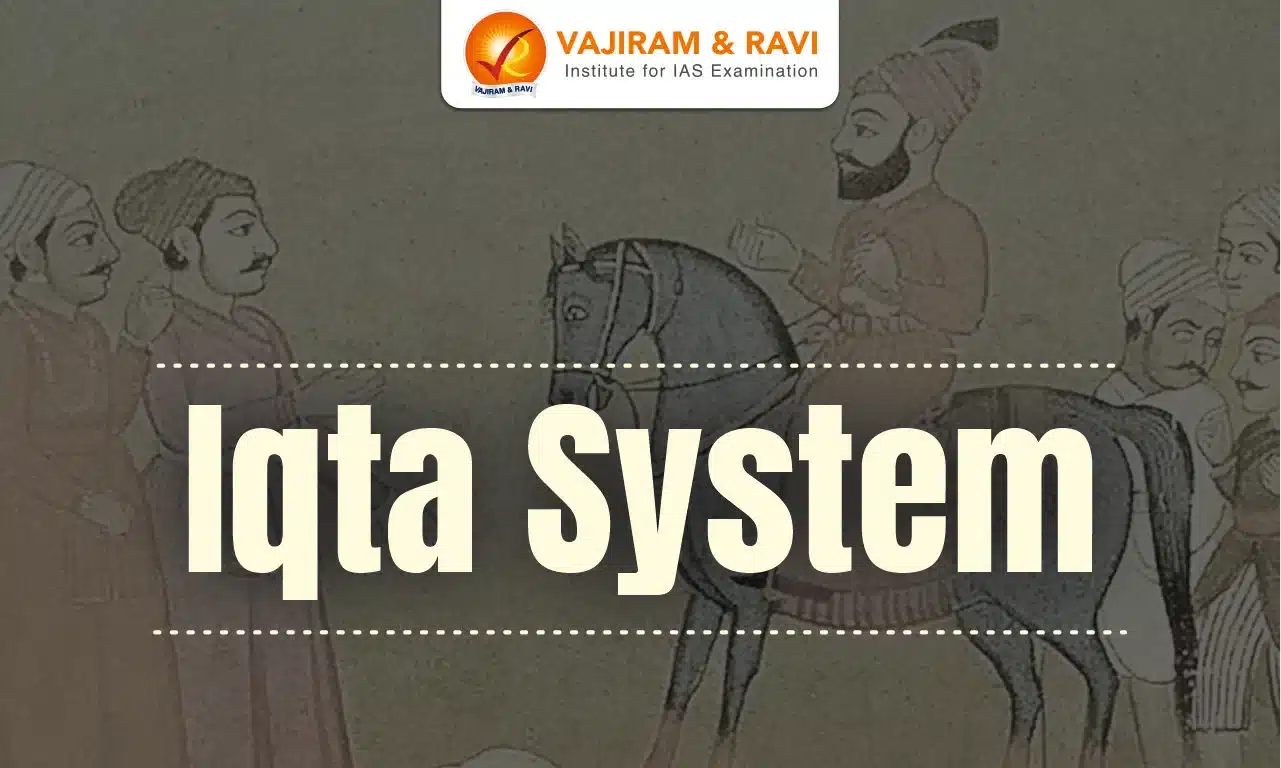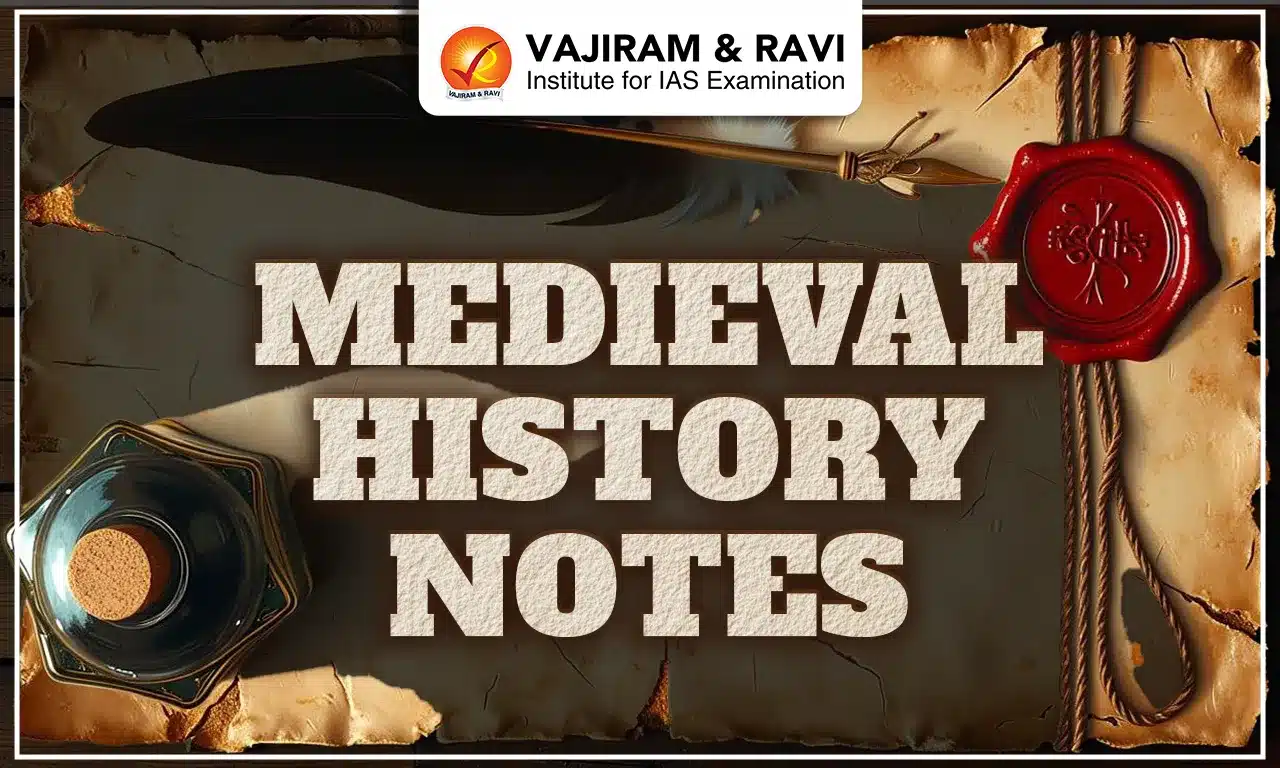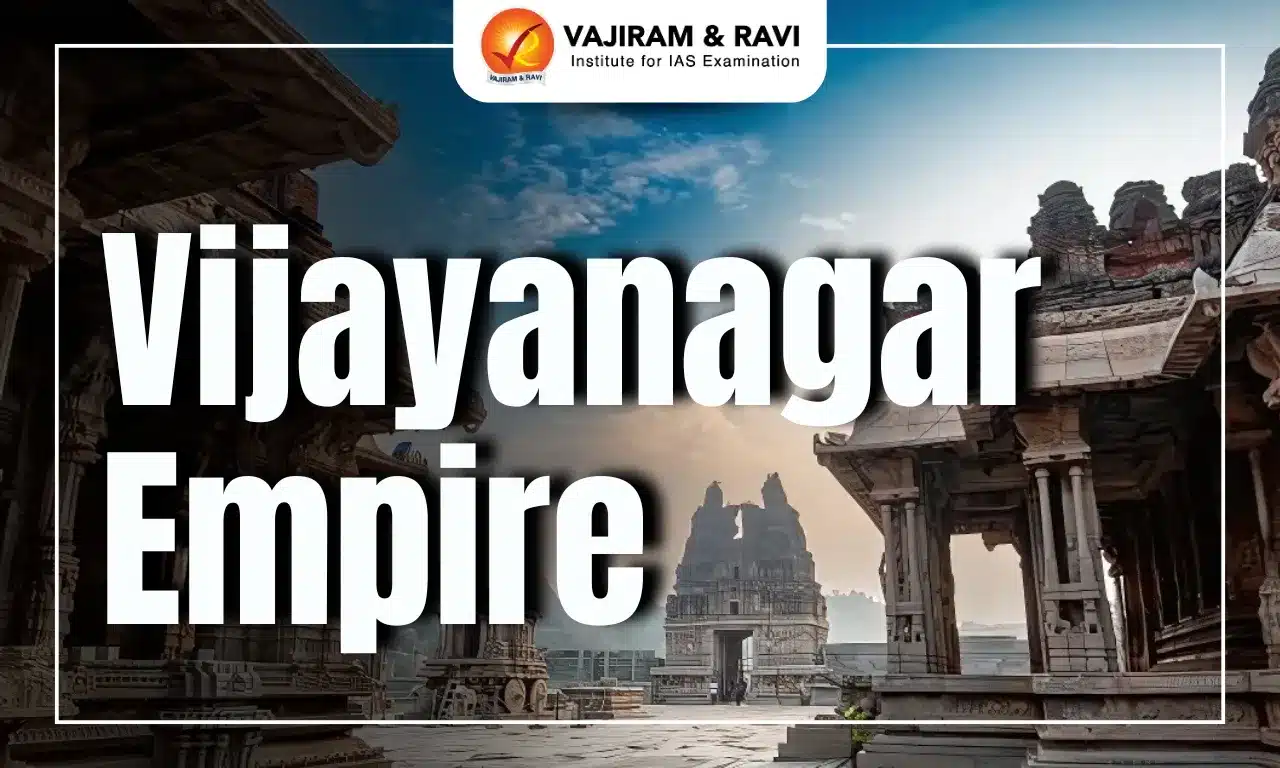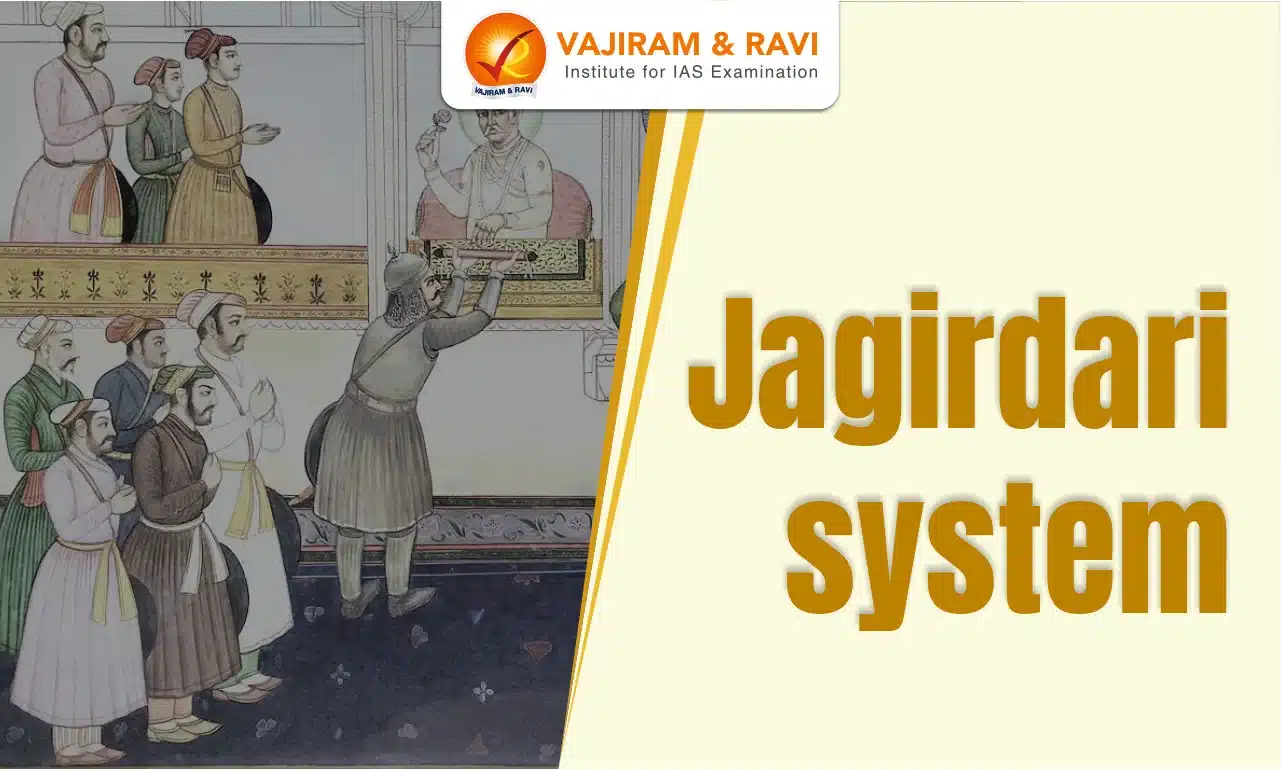Iqta system was a crucial administrative and land distribution mechanism during the Delhi Sultanate period. Under this system, the empire was divided into iqtas, which were assigned to nobles, officers, and soldiers for revenue collection and governance. These Iqtas were transferable and Muqtis, or Iqtadars, managed tax collection, maintained troops, and ensured administration, with surplus revenue sent to the Sultan’s treasury.
Over time, the Iqta system evolved under various rulers like Iltutmish, Allaudin Khilji, and Muhammad Tughluq, introducing changes to improve central control. However, by the Mughal period, its significance declined due to centralized governance, financial reforms, and the emergence of alternative systems.
Iqta System Meaning
Iqta system, originating from the Arabic term "Iqta," referred to an administrative regional unit akin to a province. It was a unique system of land distribution and governance developed during the Sultanate period. Under this system, the empire was divided into various large and small tracts of land, called iqtas, which were assigned to (Iqtadars) nobles, officers, and soldiers for revenue collection and administration.
- The Iqtas were transferable, meaning the Iqtadars, or holders, were rotated between regions every few years.
- The Iqta system did not grant land ownership but served as an administrative unit, with larger Iqtas overseen by Muqtis or Walis.
- They were responsible for tax collection, maintaining troops, and managing administration while sending surplus revenue to the central government, all under royal audit.
Iqta System Evolution
Iqta system evolved, with various rulers making attempts to streamline administration, enhance central control, and address the challenges posed by decentralized governance. The Iqta system underwent the following modifications, from Iltutmish’s initial setup to later reforms under the Tughlaqs and Lodis.
- Muhammad Ghori: Introduced the Iqta System in India. It was non-institutionalized during his rule.
- Iltutmish: He institutionalised the Iqta System. Under this system, the entire Delhi Sultanate was divided into several pieces of land which were assigned to officials. The officials who held these land assignments were called Muqti.
- Iqta was not hereditary and did not entitle the Muqti to the Right of ownership. Muqtis were appointed to govern Iqtas but had no hereditary ownership.
- Balban: The same practices continued and an even more severe demand of depositing the excess amount collected called fawazil to the Sultan’s treasury came up. An official called khwaja i.e. the accountant was appointed to monitor and check the revenue collection in Iqtas.
- Allaudin Khilji: Increased central intervention in the Iqtadari system to manage his expanded empire. Khalisa (direct revenue collection) was established near Delhi. Distant areas were assigned as Iqta to muqtis. Cavalry soldiers were now paid in cash from the Sultan's treasury instead of land assignments in village Iqtas.
-
- The Finance Department Diwan-I Wizarat was made responsible for estimating tax income (kharaj) from each Iqta.
- Ghiyasuddin Tughlaq: Introduced some moderation. The enhancements in the estimated revenue income by the central finance ministry were not to be more than 1/10 or 1/11th annually. The muqtis were allowed to keep l/10th to l/20th above their sanctioned salaries.
- Muhammad Tughluq: Radically changed the Iqta system by separating the two key functions: tax collection and troop maintenance. This separation aimed to secure larger income for the Sultan’s treasury.
- Military commanders (Amirs) were put in charge of the troops instead of the muqtis.
- Ibn Battuta's account of Hazar of Amroha provides evidence of dual administration, where an amir military commander handled troops, while the muqtis focused on tax collection.
- Commanders now received only a part of the iqta that was equivalent to their salary. This led to dissatisfaction among commanders.
- Firuz Tughlaq: He demanded a new estimate of revenues, called ‘jama’, which was kept fixed throughout his reign. No enhancements were made to the jama, reducing pressure on muqtis to increase contributions to the treasury.
- He distributed lands from the Iqta and Pargana systems and the empire’s revenue to people in the name of God.
- Soldiers were paid in terms of the revenues from villages, called ‘wajh’, rather than direct salaries.
- Some soldiers were paid in cash, while others received rafts (itlaq, Barat) on the noble’s Iqta for their services.
- Firuz introduced a hereditary Iqta system, allowing Iqta ownership to pass within families. After the death of a muqti, the Iqta could be passed to his sons, sons-in-law, slaves, and widows.
- The central government lost control as muqtis gained local control over their Iqtas. Muqtis strengthened their influence and power in the region, making transfers and troop maintenance rare in successive reigns.
- Lodhis: The administrative charges and revenue assignments were combined and these were no longer called iqta but were simply called sarkars and Parganas.
Features of Iqta System
Iqta system was the cornerstone of the Sultanate's administrative structure, offering an effective means to govern a vast and diverse empire. It had the following features:
- Revenue Collection Assignment: The ruler would grant the Iqtadar the right to collect taxes or a portion of the agricultural output from a specific territory. This revenue could come in the form of agricultural produce, monetary taxes, or a combination of both.
- Reciprocal Service: In return for the revenue assignment, Iqtadars were obliged to perform certain services for the state. These services varied but were typically of a military or administrative nature.
- Temporary or Hereditary: Depending on the ruler's whim, iqtas may be either temporary or hereditary. Within the Iqtadar's family, the rights and obligations may be passed down through the generations in the case of hereditary Iqtas.
- Revenue Collection: Iqtadars held considerable power in the areas they were tasked with protecting. They were in charge of collecting taxes, upholding law and order, and making sure the designated area boosted the empire's general economy.
- Iqta as a reward: In many cases, especially for military leaders, the granting of an Iqta was a prize for services to the sovereign. It acted as a reward for commitment and loyalty.
Iqta System Division of Iqta
‘Iqtas’ were divided into smaller units called ‘shiqqs’ and ‘parganas’ and the villages. The head of a ‘Shiqq’ was called ‘Shiqqdar’. Important officials of a ‘paragana’ were the ‘amil’ or ‘munsif’ the treasurer.
Iqta System Iqtadar Role
Iqtadar was an appointed official in the Iqta system, responsible for governing a province on behalf of the Sultan. He held significant administrative and military powers but operated under strict supervision and restrictions imposed by the central government to ensure loyalty and compliance with imperial authority.
Iqtadar Duties and Powers
He was under the supervision of the Central government and carried on orders of the Sultan. He enjoyed the same powers in the province as the Sultan enjoyed in the empire. They maintained large armies and were required to send the same when asked by the Sultan. They maintained law and order in the territory under his charge and protected the life and property of the people. Their other roles include:
- Appointing soldiers in his army.
- Collecting revenue from the people of his territory.
- To send yearly reports of his income and expenditure to the centre.
- Administering expenditures on the maintenance of the army, depositing the rest in the state treasury.
Iqtadar Restrictions
The Iqtadar did not always enjoy hereditary powers. The Sultan could take back Iqtadar. The Iqtadar was liable to be transferred from one place to another. He could not engage himself in wars of extension without the prior approval of the Sultan. The elephants and the members of the royal family captured during wars were to be sent to the Sultan.
- He was not allowed to hold his court.
- He could not use a canopy or royal emblem.
- He could not mint coins in his name.
- He could not read ‘Khutba’ in his name.
Iqta System Decline
During the Delhi Sultanate and the early Mughal era, the Iqta method was widely used. But with time, its importance diminished. Its decrease was caused by several factors, including:
- Centralization: A more centralized administrative system emerged as the Mughal Empire consolidated its control. Strong central authority was not compatible with the Iqta system.
- Financial Reforms: The Mughal emperors implemented a more standardized income collection system and financial reforms, which lessened the necessity for the Iqta system.
- Permanent Settlement: In the late 1700s, the British East India Company replaced the Iqta system in Bengal with the Permanent Settlement. This further reduced the importance of the Iqta.
Iqta System UPSC PYQs
Q1. Consider the following statements: (UPSC Prelims 2019)
- In the revenue administration of the Delhi Sultanate, the in charge of revenue collection was known as ‘Amil’.
- The iqta system of Sultans of Delhi was an ancient indigenous institution.
- The office of ‘Mir Bakshi’ came into existence during the reign of Khalji Sultans of Delhi.
Which of the statements given above is/are correct?
(a) 1 only
(b) 1 and 2 only
(c) 3 only
(d) 1, 2 and 3
Ans: (a)
Last updated on February, 2026
→ UPSC Notification 2026 is now out on the official website at upsconline.nic.in.
→ UPSC IFoS Notification 2026 is now out on the official website at upsconline.nic.in.
→ UPSC Calendar 2026 has been released.
→ UPSC Final Result 2025 is expected to be released in the first week of March 2026.
→ Check out the latest UPSC Syllabus 2026 here.
→ Join Vajiram & Ravi’s Interview Guidance Programme for expert help to crack your final UPSC stage.
→ UPSC Mains Result 2025 is now out.
→ UPSC Prelims 2026 will be conducted on 24th May, 2026 & UPSC Mains 2026 will be conducted on 21st August 2026.
→ The UPSC Selection Process is of 3 stages-Prelims, Mains and Interview.
→ Prepare effectively with Vajiram & Ravi’s UPSC Prelims Test Series 2026 featuring full-length mock tests, detailed solutions, and performance analysis.
→ Enroll in Vajiram & Ravi’s UPSC Mains Test Series 2026 for structured answer writing practice, expert evaluation, and exam-oriented feedback.
→ Join Vajiram & Ravi’s Best UPSC Mentorship Program for personalized guidance, strategy planning, and one-to-one support from experienced mentors.
→ Check UPSC Marksheet 2024 Here.
→ UPSC Toppers List 2024 is released now. Shakti Dubey is UPSC AIR 1 2024 Topper.
→ Also check Best UPSC Coaching in India
Iqta System FAQs
Q1. Who introduced the Iqta system in India?+
Q2. Who abolished the Iqta system?+
Q3. What is the iqta system?+
Q4. What did the Iqtadars control in the Iqta system?+
Q5. What were the divisions within the Iqta system?+
Tags: quest UPSC Medieval History














